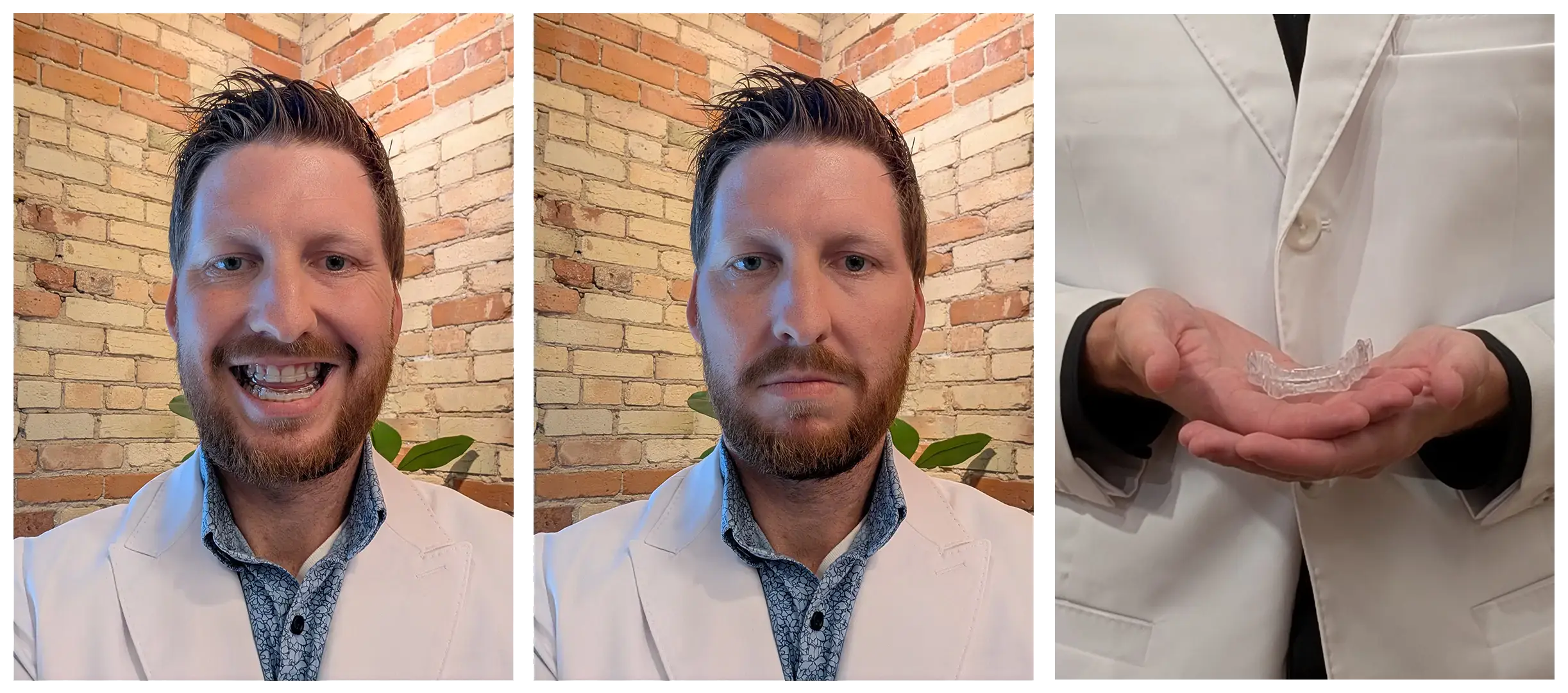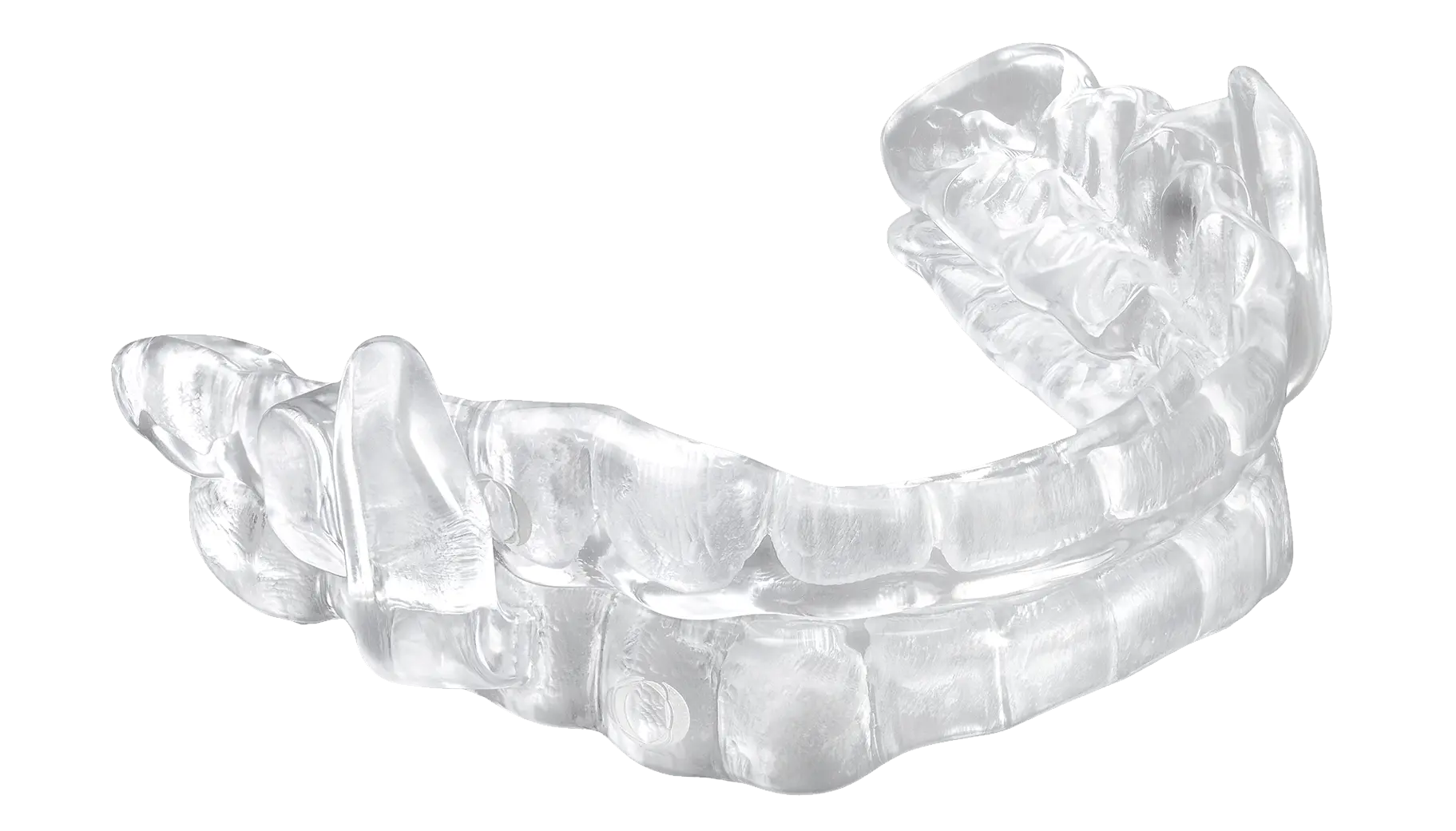CPAP changed the game for many people with sleep apnea. Still, its time as the most effective option for treating sleep apnea may be ending soon due to the latest oral appliances, which recent studies suggest outperform CPAP and are at least non-inferior to CPAP.
If you’re struggling with masks, hoses, or nightly compliance, these cutting-edge oral appliances may be the alternative you’ve been hoping for to find your healthy night’s sleep. The latest precision oral appliances are small, retainer-like devices worn during sleep. They gently position your lower jaw forward to help keep your airway open throughout the night. Patients love the comfort, portability, and freedom of these CPAP alternatives. The most recent studies show they are non-inferior to CPAP in overall effectiveness, and they outperform CPAP in various wellness metrics, like improvements in energy, sleep quality, cognition, alertness, hours of sleep/night, and more.




